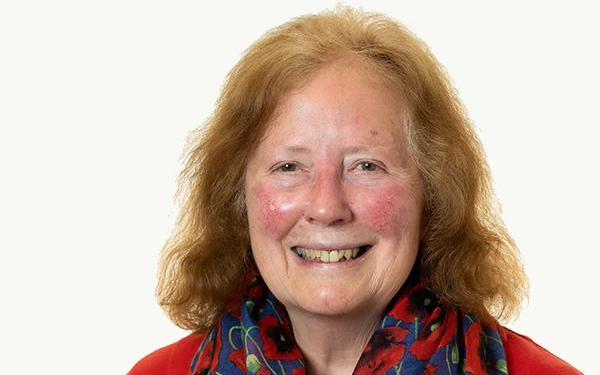
Proposals to legally limit children’s social workers’ caseloads have been rejected by the Welsh Government.
It said it may be “counterproductive” to change the law to require councils to set maximum manageable caseloads for their children’s practitioners and take all reasonable steps to maintain them.
Deputy minister for social services Julie Morgan also said action was already being taken to improve support for practitioners and enhance workforce planning.
The proposal to limit caseloads was made by the Welsh Parliament’s (Senedd) children, young people and education committee in a report on reforming provision for children in care and care leavers in the country, published in May 2023.
During its 10-month inquiry, the committee found that, “overwhelmingly”, children’s practitioners’ caseloads were too high, resulting in children in care struggling to get the support they needed.
Proposal to limit caseloads
While recognised the challenges of capping caseloads, the committee said the Welsh Government should “acknowledge, in the most powerful way it can, that high caseloads are unsafe and are critically damaging children’s social work”, by introducing legislation based on that in place for nurses in Wales.
This should be backed by a comprehensive workforce sufficiency plan”, potentially including national pay and conditions, to ensure authorities have enough practitioners to implement safe workloads.
However, the Welsh Government rejected both proposals, in its response to the committee’s report, published this month.
“Caseloads are managed at an operational level, and the allocation of cases should be made in relation to the social workers’ knowledge, experience, workload and what matters to children and families,” it said.
Caseload maximum ‘counterproductive’
“Complexity in cases varies considerably, and therefore it could be counterproductive to set a caseload maximum.”
It added that regulator Social Care Wales was carrying out a scoping exercise looking at approaches to workload management across Wales’s 22 councils. The Welsh Government also said it said, it would examine how best to support caseload allocation and management, drawing on existing evidence of what works in how employers manage social workers’ workloads.
“In doing so we would consider how to support what matters to children and families and the wellbeing needs of the social work workforce,” it added.
On the proposed workforce sufficiency plan, it said this was not necessary because of existing work that was taking place.
This included the social work workforce plan issued last year by Social Care Wales, part of a wider health and social care workforce strategy that sets an ambition of ensuring sufficient staff to meet needs by 203.
It added that the regulator was working with councils to examine how workforce planning could be improved, while there was also wider action being undertaken to “improve the working conditions, training, and options for social workers”.
This included initiatives to enable existing social services staff to qualify as social workers.
Welsh Government criticised
However, the Welsh Government’s stance drew a critical response from children, young people and education committee members, in a Senedd debate on its report last week.
Chair Jane Bryant, a member of the governing Labour Party, said that the committee had considered the existing work cited by the Welsh Government in its response, and concluded “they weren’t going to effect the scale of change that care-experienced children and young people and social workers deserve”.
Plaid Cymru committee member Sioned Williams said: “We heard powerful and heartbreaking evidence that social workers are under so much pressure sometimes that they find it difficult to foster a good relationship with children and families and that many people then don’t receive the support that they need.
“In its response, the government notes a wide range of work being done to improve working conditions, training and options for social workers. So, why does the reality tell us such a different tale?”
Caseload weighting systems ‘admin-focused’
However, the government’s position did win support from Liberal Democrat Senedd member Jane Dodds, a child protection social worker for 27 years before entering politics.
She said her professional experience of a workload weighting system was that it left practitioners focused on administration, rather than children.
“So, what we need is more ambition around making sure social workers have the right support, that they have practice-based theory, evidence based, that they have good supervision, that it’s systemic therapy, and that we have reflective practice,” Dodds added.
“For me, workload weighting, maximum workloads, does not work and won’t.”
Responding for the government, Morgan, herself a former social worker, said: “Social Care Wales is looking at those workforce challenges and is planning a route ahead. As a social worker myself, I know of the huge pressures in social work, and I know that we must do all we possibly can to help the social workers, and we are planning for that.”



 Family help: one local authority’s experience of the model
Family help: one local authority’s experience of the model  ‘I spent the first three months listening’: how supportive leadership can transform children’s services
‘I spent the first three months listening’: how supportive leadership can transform children’s services  How senior leaders in one authority maintain a culture of excellence
How senior leaders in one authority maintain a culture of excellence  How staff support ensures fantastic outcomes for children and families
How staff support ensures fantastic outcomes for children and families  Workforce Insights – showcasing a selection of the sector’s top recruiters
Workforce Insights – showcasing a selection of the sector’s top recruiters 

 Facebook
Facebook X
X LinkedIn
LinkedIn Instagram
Instagram
With all the will in the world “practice-based theory, evidence based, that they have good supervision, that it’s systemic therapy, and that we have reflective practice” does not support social workers managing high complex caseloads, the paperwork and non statutory administration that goes with it, the relationships with children, carers and their families in the current climate of dwindling and fighting for resources. And the emotional, mental and physical toll this takes.
You are not going to retain good, experienced social workers on a long term basis. Pair that with trying to remove agency workers/reduce hourly rate is just going to contribute to this recipe for disaster.
The impact of covid is continuing to be seen on our children, carers, partner agencies as well as social workers. The demand and trauma is HIGH on everyone.
Primary school classes are capped at 30 and overall I think this is a good thing.
I don’t buy the argument of caps being ‘counterproductive due to varying complexity of cases’. If a social worker has 35 cases it doesn’t matter how skilled they are or how low the needs are, it is an impossible task, similar to a teacher who is given a classroom of 50 pupils.
I think a baseline cap whether it be a classroom or social worker case load is vital.